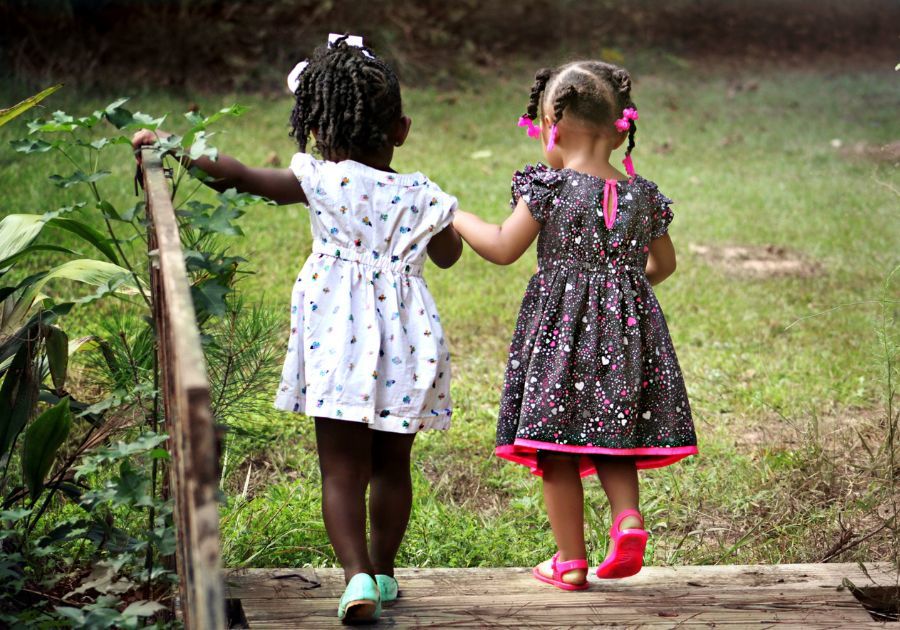Today, we're going to celebrate something truly special—the magic of girl friends. So, grab your favorite cup of tea or coffee, cozy up, and let's dive into why these relationships are pure gold for our daughters.
You know, as moms, we often find ourselves wearing many hats—chauffeur, chef, counselor, and the list goes on. But one role that often gets overlooked is that of being our daughters' biggest cheerleaders and supporters in nurturing their friendships with other girls. It's not just about playdates and sleepovers; it's about fostering connections that can shape their lives in profound ways.
From the moment our daughters are born, they start building relationships—with us, with family members, and eventually, with friends. As they grow, these friendships become increasingly important. They become the safe havens where our girls can truly be themselves, away from the pressures of the world.
Think back to your own childhood—remember those endless hours spent giggling with your best friend, sharing secrets under the stars, and dreaming about the future? Those moments were more than just fun; they were the building blocks of lifelong bonds.
Research has shown time and again the positive impact of strong female friendships on girls' development. Studies indicate that girls with close friends tend to have higher self-esteem, better communication skills, and are more resilient in the face of challenges. In essence, these friendships act as a support system—a soft place to land when the world feels too heavy. But fostering these friendships isn't just about scheduling playdates and monitoring social media—it's about teaching our daughters the value of empathy, kindness, and authenticity. It's about encouraging them to lift each other up, celebrate each other's successes, and stand by each other during tough times.
As moms, we play a crucial role in shaping our daughters' attitudes towards friendship. By modeling healthy relationships in our own lives and demonstrating empathy and compassion towards others, we set the foundation for our girls to do the same.
So, how can we support the female relationships of our daughters, step-daughters, nieces, or any young girl in our lives? Here are a few ideas:
- Encourage inclusivity: Teach your daughter the importance of including everyone, regardless of differences. Encourage her to reach out to girls who may be shy or feel left out.
- Be a good listener: Create a safe space for your daughter to talk about her friendships. Listen without judgment and offer guidance when needed, but also allow her to navigate conflicts on her own when appropriate.
- Facilitate opportunities for bonding: Host gatherings or outings where your daughter can spend quality time with her friends. Whether it's a movie night, a picnic in the park, or a DIY spa day, these shared experiences help strengthen their bond.
- Celebrate friendship milestones: Mark special occasions like birthdays, holidays, or International Women's Day by celebrating the friendships in your daughter's life. Encourage her to express gratitude for her friends and show them how much they mean to her.
- Lead by example: Show your daughter what it means to be a good friend by nurturing your own friendships. Let her see you supporting and uplifting the women in your life, and she'll learn to do the same.
Remember, as our daughters navigate the ups and downs of friendship, they'll look to us for guidance and support. Let's be their confidantes, their cheerleaders, and their guiding lights as they forge these invaluable connections. Let's celebrate the power of girl friends—the bonds that lift us up, make us laugh until our stomachs hurt, and remind us that we're never alone in this journey called life.
So here's to the girls who stick together through thick and thin, who lift each other up and shine brighter together than they ever could alone. Here's to the unbreakable bond of friendship—the ultimate superpower of girlhood.
Cheers to you, fabulous moms, stepmoms, grandmas, Gigis, and mother figures, for raising daughters who will change the world—one friendship at a time.
References
Parker, J. G., & Asher, S. R. (1993). Friendship and friendship quality in middle childhood: Links with peer group acceptance and feelings of loneliness and social dissatisfaction. Developmental Psychology, 29(4), 611–621.
Bukowski, W. M., Hoza, B., & Boivin, M. (1994). Measuring friendship quality during pre- and early adolescence: The development and psychometric properties of the Friendship Qualities Scale. Journal of Social and Personal Relationships, 11(3), 471–484.
Rose, A. J., & Rudolph, K. D. (2006). A review of sex differences in peer relationship processes: Potential trade-offs for the emotional and behavioral development of girls and boys. Psychological Bulletin, 132(1), 98–131.
Benenson, J. F. (1990). Gender differences in social networks. Journal of Early Adolescence, 10(4), 472–495.



